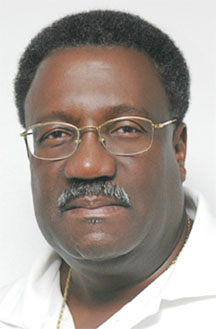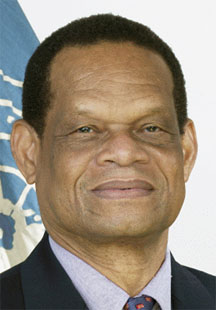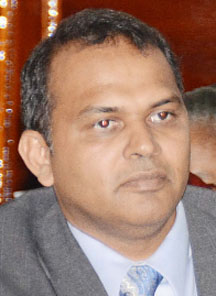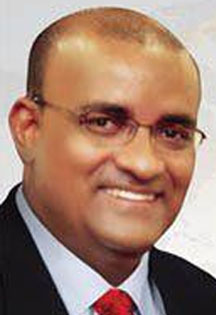That the Government of Guyana ascribes an altruistic motive to its intervention in the feuding among the rival factions in the struggle for control of the Guyana Cricket Board (GCB) which had placed local cricket in an even more perilous state than it had been previously, does little to disguise the fact that the intervention was “political,” initiated as it was by President Bharrat Jagdeo during his last few months in office. By intervening the government has indeed rendered itself vulnerable to such an accusation, though the argument that the protagonists ought to have been left to their own devices is itself a weak one. They had already been left to themselves for many months and certainly appeared to be making no progress towards a resolution of the crisis. In the meantime the game itself was being left to suffer.
At the level of the officials vying for control of the Board it is really a matter of the right to rule. Whatever nobler motives they may proffer, we have seen enough to conclude with considerable justification that the whole affair was no more than an unseemly power struggle. It had little if anything at all to do with salvaging local cricket from the quagmire into which it has sunk.

The local troubles are in fact no more than a microcosm of the broader dilemma in which the regional game finds itself; except that to a much greater degree than any of the other cricket-playing territories in the region, the absurd affliction persists here in Guyana in the fashion of a bad case of influenza …………one day seemingly subsiding, the next, threatening to drag you to death’s door.
Curiously, the real roots of the problem have been all but lost in the ensuing conflict. It is not just cricket but almost every sport in Guyana, which, largely on account of official neglect, has survived through the forced adoption of the various Boards and Associations by Godfathers seeking extra-curricula pursuits. Often, it appears that their interest in sport go no further than a desire for the accumulation of power. Where power is at stake conflicts inevitably arise and that, based on the available evidence, appears to have been the case with the local cricket Board.
Invariably, – and again this appears to have been the case with the power struggle among the feuding factions – the bigger picture, in this case, removing our cricket from the doldrums into which it has sunk, becomes lost in the intensity of the conflict.

The manner in which the feuding has unfolded attests to the absurdity of the fracas. Resort to the courts has put a bizarre face on the problem, causing it to appear much more like a legal squabble over a privately-owned parcel of land than an issue that involves the welfare of cricket. Cricket is public property; it belongs to all of the people of Guyana and not to those who engage the courts in what appears to be a battle to own the game; and if the government correctly considers itself to be as legitimate a stakeholder as any, it too must remember that the game itself is very much public property.
Save and except the stature which our cricket has built over decades of outstanding individual contributions to a West Indies team that once bestrode the international stage like a colossus, there is not a great deal in the local game to squabble over. Guyana’s cricket is riddled with crisis, beginning with a paucity of both facilities and players deemed good enough to be selected even for a West Indies team that is currently weaker than most; so that if there is anything there to fight for it would have to be the restoration of the standard of our cricket.
That, most certainly, cannot be accomplished by administrators who appear far more interested in the unfolding drama at both the legal and political levels than in the crisis itself, accentuated by bizarre occurrences not least the near exclusion of the Guyana team from the recent regional T-20 Tournament and, more recently, the naming of two separate squads for the upcoming Regional Four-Day event by both the IMC and the GBC.
The real pity, of course, is that our young cricketers, many of whom have interwoven cricket into their future, are restricted by procedures and protocols that muzzle them; so that they remain quiet, bemused, contemplating the off-the-field occurrences that threatens the future of the game and their own future.

The players apart, it is the fans, the people whom, along with the players themselves really ‘make’ the game who have a right to feel cheated. Cricket, these days, appears to be less and less about cheering individual on-field accomplishments and saluting heroes and more and more about things to do with match-fixing and ball-tampering and the various other demons that have possessed the game. Our cricket has its own demons and it is, among other things, the grotesque manifestations of that condition of possession that has caused local cricket lovers to search elsewhere for things with which to occupy themselves. Life is short and we cannot live those short lives for cricket only.
Political intervention in the affairs of the regional Boards is not a matter which the West Indies Cricket Board (WICB) would normally take lightly. The problem is that the larger regional crisis afflicting the game, not least the protracted exclusion of the Jamaican opening batsman Chris Gayle from the West Indies team, has caused the Board so much embarrassment and loss of face that it now appears to be in a far from fit state to intervene effectively in firefights like the Guyana crisis, particularly when it faces a government on the other side of the table.
If, fleetingly, it was felt that a change of presidency might see a tactical shift in the Guyana’s approach to the problem, the government, under a new President,, persisted with the creation of an IMC, naming local cricketing icon Clive Lloyd as its Head. That, most assuredly, created the impression in some quarters that those who favored the ousting of the Board were indeed benefitting from the backing of powerful political forces. In response, the beleaguered Board has opted once again for the ‘protection’ of the courts.

Earlier, meetings between high officials of government, including President Donald Ramotar and Sport Minister Dr. Frank Anthony and WICB President Dr. Julian Hunte resulted in differing accounts regarding the outcome and there are those who would argue that WICB President Dr. Hunte could well have spared himself the trip to Guyana earlier this month.
The arguments persist as to whether, perhaps, even if the Government of Guyana felt the need to intervene to bring an end to the imbroglio afflicting the Board, the imposition of an IMC was the best way to do so. Apart from having created a decidedly awkward situation for an already enfeebled WICB it has angered proponents of the view – and there are many – that overt political intervention is bad for cricket or any sport, for that matter.
Who’s to blame has become the primary preoccupation of those who still trouble themselves to keep track of the unfolding saga. The problem with the blame game of course is that egos insert themselves into the process leaving perilously little room for an easy solution. That would appear to be the problem.
The government has invested far too much of its own ‘authority’ in the creation of an IMC and the Board, clinging to a court decision which, at least in its own view, serves to buttress bona fides, simply refuses to back away.





